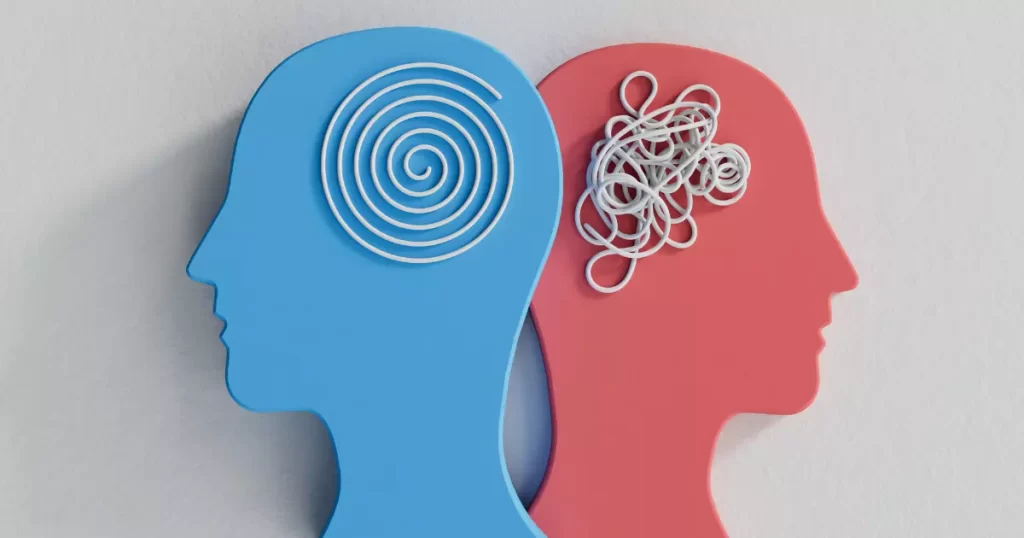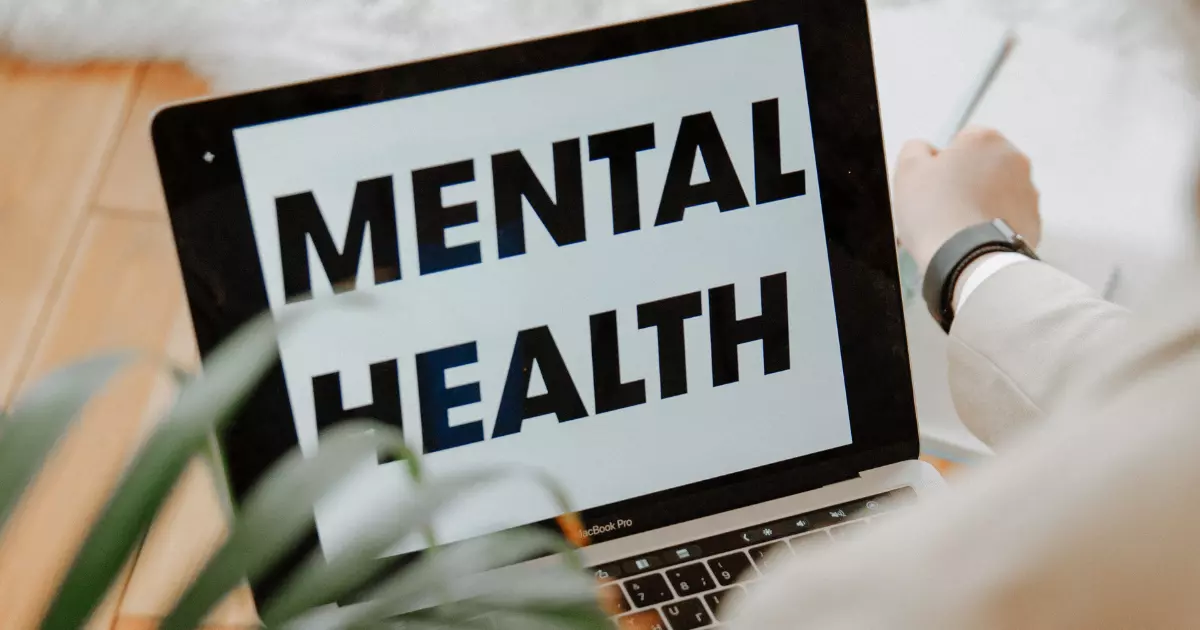Mental health has become a pressing issue in today’s fast-paced world, and many individuals struggle to find time to seek in-person therapy. The advent of online mental health counseling has changed this. Online therapy is a modern, accessible approach to therapy that enables individuals to connect with licensed therapists in a safe and convenient virtual setting.
The platform allows individuals to seek professional help from the comfort of their homes or any other location. This mode of counseling is fundamental as it makes therapy accessible to those who may not have been able to attend face-to-face sessions due to physical or geographical limitations.
This article explores online mental health counseling, its benefits, and why it is a crucial resource for addressing mental health challenges.
Definition of Online Mental Health Counseling

Online mental health counseling refers to providing therapy and counseling services through digital platforms and communication tools. It involves connecting with licensed mental health professionals via video, phone, or secure messaging systems.
This form of counseling provides individuals with a convenient and accessible way to address their mental health concerns from the comfort of their own homes.
The virtual sessions are similar to the traditional face-to-face therapy experience, allowing clients to engage in confidential conversations, receive support, and explore strategies for managing their mental well-being.
Online mental health counseling offers a flexible and inclusive approach to therapy, breaking down barriers and reaching individuals who may have otherwise struggled to access professional help.
Benefits of Online Mental Health Counseling
Online mental health counseling is an increasingly popular alternative to traditional in-person therapy. This form of counseling has numerous benefits for individuals seeking support for their mental health.
Online counseling is convenient and accessible, allowing individuals to connect with licensed therapists from anywhere with an internet connection.
This mode of counseling provides greater flexibility, privacy, and comfort for clients. Additionally, online counseling may be more cost-effective than in-person therapy and removes geographical barriers.
In this section, we explore the benefits of online mental health counseling and why it is becoming an increasingly popular option for mental health support.
Convenience and Accessibility
Convenience and accessibility are two significant benefits of online mental health counseling. With online therapy, individuals can seek professional support from the comfort of their own homes or any location of their choice.
This eliminates the need for travel, saving time and reducing stress. Online counseling also provides greater flexibility in scheduling sessions, allowing individuals to find appointments that work best for them.
Moreover, it breaks down geographical barriers, making therapy accessible to individuals in remote areas or those with limited mobility. The availability of virtual platforms and communication tools has made mental health support more convenient and accessible than ever before, enabling people to prioritize their well-being easily.
Flexibility and Affordability
Flexibility and affordability are key benefits of online mental health counseling. Online therapy allows individuals to schedule sessions at times that suit their busy lives. With no need to commute to a physical location, clients can save time and appropriate therapy into their schedules more seamlessly.
Additionally, online therapy often proves to be more cost-effective than in-person therapy. Clients can access various affordable options, including sliding-scale fees and subscription-based services.
This affordability makes mental health support more accessible to a wider population. The combination of flexibility and affordability in online mental health counseling ensures that individuals can prioritize their mental well-being without compromising their schedules or budgets.
Anonymity and Confidentiality
Anonymity and confidentiality are crucial benefits of online mental health counseling. For many individuals, the fear of being recognized or stigmatized can be a significant barrier to seeking therapy.
Online counseling provides a safe and secure space where clients can remain anonymous, using pseudonyms or avatars. This anonymity allows individuals to share their deepest concerns and emotions without fear of judgment.
Additionally, online platforms employ encryption and privacy measures to ensure the confidentiality of client information. Engaging in therapy from the privacy of one’s own space fosters a sense of comfort and trust, facilitating open and honest communication between clients and therapists.
A Wider Range of Options
One of the notable benefits of online mental health counseling is the broader range of options it offers. Traditional in-person therapy may be limited by geographical proximity and availability of therapists. However, online counseling breaks down these barriers, allowing individuals to connect with therapists worldwide.
This expanded pool of professionals provides clients with a greater variety of expertise, specialties, and therapeutic approaches.
Additionally, online counseling offers various communication tools, including video calls, phone calls, and secure messaging. This variety allows clients to select the mode of communication that suits them best, enhancing their overall therapy experience and increasing the likelihood of finding the right fit.
How Online Mental Health Counseling Works

Online mental health counseling has transformed how individuals seek therapy and support for their mental well-being indeed, but how exactly does it work?
Online mental health counseling is a convenient and accessible way to receive professional support for mental health concerns. Through secure online platforms, individuals can connect with licensed therapists from the comfort of their own homes.
The process typically involves scheduling sessions through video conferencing, phone calls, or chat platforms.
During the sessions, individuals engage in therapeutic discussions, where they can express their thoughts, emotions, and concerns. Therapists provide guidance, support, and evidence-based interventions tailored to the individual’s needs.
Online counseling offers flexibility in terms of scheduling and location, making it easier for individuals to fit therapy into their busy lives. The confidentiality and privacy of online sessions are maintained through secure technology platforms.
In this section, we will delve into the process of online mental health counseling and explore the various components that make it effective.
Choosing the Right Online Counselor for You
Choosing the right online therapist is crucial in your mental health journey. With numerous options available, finding a therapist who aligns with your needs and preferences is essential for a successful therapeutic experience.
Consider factors such as the therapist’s qualifications, specialties, background, and expertise. Research their therapeutic approach and ensure it resonates with you. Look for reviews or testimonials to gauge client satisfaction. Additionally, consider practical aspects like availability, fees, and communication methods.
Trust your intuition and take advantage of initial consultations or free sessions to assess therapist-client compatibility. Taking the time to choose the right online counselor ensures a supportive and effective therapeutic relationship. Remember, you can typically schedule a free consultation in order to interview a potential therapist to see if they are a good fit for you.
Setting Up an Online Counseling Session
Setting up an online counseling session is a simple process that requires a few key steps. First, research a reputable online counseling platform or licensed therapist offering virtual services. Check their availability, fees, and communication methods.
Once you have selected your preferred therapist or platform, schedule an initial consultation or assessment appointment. Ensure you have a stable internet connection, a quiet and private space, and any necessary technology for the chosen communication mode.
Log in to the designated platform on the day of the session or call the therapist using the agreed-upon communication method. Follow the therapist’s guidance and engage actively in the session.
Tips for Making the Most Out of Your Online Counseling Session
To make the most out of your online counseling session, here are some helpful tips. First, find a quiet and private space where you won’t be interrupted. Ensure a stable internet connection and test your audio and video settings beforehand.
Prepare a list of topics or concerns you want to discuss so you make the most of your time. Be open and honest with your therapist, expressing your thoughts and emotions freely.
Take notes during the session to reflect on later. Practice self-care after the session to process any emotions that may arise. Remember, online counseling is a collaborative effort, so actively participate and engage in the therapeutic process to maximize its benefits.
Is Online Mental Health Counseling Effective?

The effectiveness of online mental health counseling has been a topic of significant interest and research. As technology continues to advance, more individuals are turning to virtual platforms for therapy. But does online counseling truly work?
In this section, we will explore the evidence and discuss the effectiveness of online mental health counseling.
Studies and Research on Online Mental Health Counseling
Numerous studies and research have shed light on the effectiveness of online mental health counseling.
Research consistently indicates that online therapy is as effective as traditional in-person therapy for various mental health concerns, including depression, anxiety, and post-traumatic stress disorder.
Studies have found similar client satisfaction levels and positive treatment outcomes between online and in-person counseling. Online therapy has also shown advantages in accessibility, convenience, and reduced stigma.
However, it is essential to note that the success of online counseling depends on factors such as the therapeutic relationship, client motivation, and technological proficiency.
Factors That Affect the Effectiveness of Online Mental Health Counseling
Several factors can influence the effectiveness of online mental health counseling. First and foremost, the therapeutic relationship between the client and therapist plays a crucial role. Trust, rapport, and a strong connection are essential for positive outcomes.
Client motivation and engagement are also vital. Active participation, openness, and willingness to implement therapeutic strategies enhance the effectiveness of the counseling process.
Technological proficiency and a reliable internet connection are practical considerations that can impact the quality of communication. Lastly, the nature and severity of the mental health concern and the therapist’s expertise and experience in online counseling can influence effectiveness.
How to Ensure the Effectiveness of Your Online Counseling Sessions
To ensure the effectiveness of your online counseling sessions, there are several steps you can take. First, establish clear goals and expectations for therapy. Communicate these to your therapist and collaborate on a treatment plan. Be open and honest during sessions, sharing your thoughts, emotions, and concerns.
Actively engage in the therapeutic process by asking questions, seeking clarification, and providing feedback. Practice self-reflection between sessions to integrate and apply what you’ve learned. Follow through with any homework assignments or suggested exercises.
Prioritize self-care and seek support when needed. Lastly, communicate regularly with your therapist to address any challenges or adjustments needed. By actively participating and committing to the process, you can maximize the effectiveness of your online counseling sessions.
Individuals Who Live in Remote Areas
Individuals who live in remote areas face unique challenges when it comes to accessing mental health services. The limited availability of mental health professionals and long travel distances can make in-person therapy difficult or even impossible.
Online mental health counseling offers these individuals a lifeline, providing them access to licensed therapists regardless of their geographical location.
With a stable internet connection, individuals in remote areas can receive the support they need from the comfort of their own homes. Online counseling breaks down the distance barriers, ensuring that individuals in remote areas have equal opportunities to prioritize their mental well-being and receive quality care.
Types of Online Mental Health Counseling
Online mental health counseling encompasses various formats catering to different preferences and needs. Video conferencing allows face-to-face interactions, offering a connection similar to in-person therapy. Phone sessions offer convenience and privacy, making them ideal for individuals who prefer verbal communication.
Chat therapy provides a text-based platform, allowing clients to express themselves through written messages in real time. Email therapy offers asynchronous communication, allowing clients to reflect and compose their thoughts before sending them.
Each type of online counseling has advantages and considerations, making it crucial for individuals to explore and choose the best format that aligns best with their comfort, preferences, and therapeutic goals.
Cognitive-Behavioral Therapy (CBT)
Cognitive-Behavioral Therapy (CBT) is a widely recognized and evidence-based therapeutic approach to address various mental health concerns. Developed by Aaron Beck and further refined by other psychologists, CBT focuses on the connection between thoughts, feelings, and behaviors.
CBT’s core is the belief that our thoughts influence our emotions and behaviors. Negative or distorted thoughts can contribute to distress and maladaptive behaviors. CBT aims to identify and challenge these negative thoughts, replacing them with more balanced and realistic ones.
CBT employs various techniques and strategies to achieve its therapeutic goals. One such technique is cognitive processing therapy, which involves identifying and modifying irrational or unhelpful thoughts. Through self-reflection and examination of evidence, individuals learn to question and reframe negative thoughts, leading to improved emotional well-being.
Another important aspect of CBT is behavioral activation. This approach focuses on increasing engagement in positive and rewarding activities. By setting achievable goals and gradually reintroducing enjoyable activities, individuals can overcome feelings of lethargy and disinterest often associated with depression and other mood disorders.
CBT also emphasizes the use of Action Plans, previously referred to as “homework assignments.” Action Plans provide a structured way to reinforce learning and facilitate long-term change. These assignments help individuals practice and apply the skills learned in therapy and apply them in their daily lives. They may involve keeping thought records, challenging beliefs, or practicing new coping strategies.
One of the strengths of CBT is its effectiveness in treating various mental health conditions. It has been successfully used to address anxiety disorders, depression, post-traumatic stress disorder (PTSD), and more. CBT’s structured and goal-oriented approach makes it particularly suitable for short-term therapy.
Furthermore, CBT is adaptable and can be delivered in different formats, including face-to-face sessions, group therapy, and even online counseling. Online CBT programs and apps provide individuals convenient access to evidence-based support and self-guided interventions.
Who can Benefit from CBT?
Cognitive-Behavioral Therapy (CBT) is a versatile therapeutic approach that can benefit individuals across different age groups and a wide range of mental health conditions. Let’s explore who can benefit from CBT and how it can specifically help children, teens, and adults with ADHD and anxiety.
Children and teens can significantly benefit from CBT. The approach is often modified to suit their developmental needs and presented in a more engaging and age-appropriate manner. CBT can help children and teens manage anxiety, depression, ADHD, behavioral issues, and social difficulties. It equips them with valuable coping skills, problem-solving techniques, and strategies to challenge negative thoughts and behaviors.
For individuals with ADHD, CBT can be particularly helpful in managing symptoms and improving daily functioning. CBT targets executive functioning skills, such as planning, organization, time management, and impulse control. By developing these skills, individuals with ADHD can better manage their attention, impulsivity, and hyperactivity. CBT helps individuals set realistic goals, enhance self-esteem, and improve social skills.
Anxiety disorders are another area where CBT has proven effective. CBT helps individuals identify and challenge anxious thoughts and beliefs, teaching them practical techniques to manage anxiety. It provides relaxation, stress reduction, and exposure therapy tools to face feared situations gradually. CBT helps individuals develop a more balanced and realistic outlook, reducing excessive worry and fear.
It helps individuals identify negative thinking patterns and develop more positive and adaptive thoughts. Moreover, CBT can benefit individuals with mood disorders such as depression. By targeting negative thought cycles and promoting behavioral activation, individuals with depression can experience significant relief and improved quality of life.
CBT also treats various other mental health conditions, including eating disorders, substance abuse, obsessive-compulsive disorder (OCD), and post-traumatic stress disorder (PTSD). It offers structured interventions and evidence-based techniques tailored to specific conditions.
Who can Benefit from CPT?
Cognitive Processing Therapy (CPT) is a widely recognized and evidence-based therapeutic approach for addressing the effects of trauma. While CPT is primarily developed for adults, adaptations have also been made to extend its benefits to children and adolescents.
Adults who have experienced traumatic events, such as military combat, sexual assault, or natural disasters, can benefit significantly from CPT. It helps individuals process their traumatic memories, challenge and modify negative beliefs, and develop healthier coping strategies. CPT can effectively reduce symptoms of post-traumatic stress disorder (PTSD), including intrusive thoughts, avoidance behaviors, and emotional distress.
Trauma-focused cognitive-behavioral therapy (TF-CBT) is often used for children and adolescents. TF-CBT incorporates elements of CPT while considering the developmental needs of younger individuals. It is suitable for children and teens who have experienced trauma, such as physical abuse, neglect, or witnessing violence. TF-CBT helps young individuals process their trauma, address distorted thoughts and beliefs, and develop effective coping skills. Behavioral therapists also involve parents/guardians in the therapy process to provide support and create a safe environment for healing.
While CPT and TF-CBT are primarily aimed at trauma-related issues, they can also benefit individuals with comorbid mental health conditions. Children and teens with co-occurring anxiety or depression, for example, can experience symptom reduction through the trauma-focused interventions of CPT or TF-CBT.
It is essential to note that the effectiveness of CPT and TF-CBT relies on the therapeutic alliance between the therapist, child, and caregiver. Building trust and creating a safe space for open communication is crucial in facilitating positive outcomes.
Mental Health Counseling Near Me? Contact Burns Virtual Psychological Solutions (BVPS)
Cognitive Processing Therapy (CPT) and trauma-focused cognitive-behavioral therapy (TF-CBT) are valuable interventions that can significantly benefit individuals who have experienced trauma.
Whether it is adults seeking relief from post-traumatic stress disorder (PTSD) or children and adolescents recovering from traumatic events, these evidence-based therapies offer effective strategies to process trauma, challenge negative beliefs, and promote healing.
With expertise in these areas, Dr. Burns and her team can provide valuable insights, assessment suggestions, and recommendations to support the patient’s well-being. Don’t hesitate to seek consultation, contact us today!









